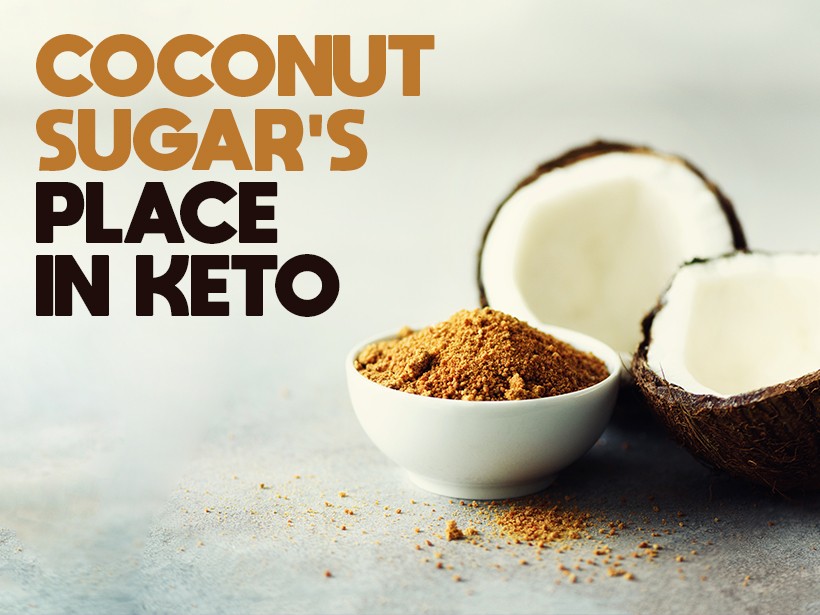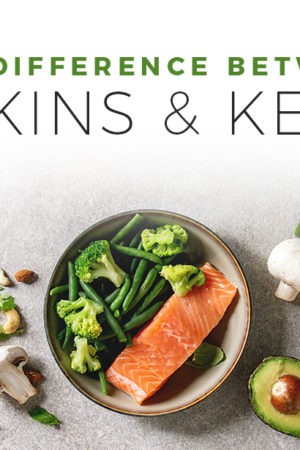In a low-carb dieter’s quest for sweet treats, you’re bound to come across the debate regarding the acceptance of coconut sugar as part of a keto lifestyle. While many claim it’s a sound alternative to artificial sweeteners, others adamantly declare it has no place in a ketogenic diet. With so much mixed information, it’s time to set the record straight on whether coconut sugar can actually be considered to be keto.
Coconut Sugar Benefits
Sure, coconut sugar has a lot of benefits that make it appear to be a suitable option for a low carb diet. Coconut sugar is an unrefined sugar, with no additives or preservatives, and is harvested from the sap of the coconut tree, making it a natural alternative to traditional table sugar.
One of the most argued aspects of coconut sugar, used in claims that it is low carb friendly, is that it is low on the glycemic index – considerably lower than granulated white sugar. Foods that are low on the glycemic index are absorbed much slower in our bodies and do not produce drastic spikes in insulin levels. While coconut sugar has a glycemic index of 35, refined white sugar has a glycemic index of 60.1 Clearly, coconut sugar is the more sustainable option for managing blood insulin levels.
Is Coconut Sugar Keto-Friendly?
While coconut sugar could be beneficial for those trying to lose weight, it is still sugar and likely would not be friendly to a ketogenic diet. While the glycemic index of coconut sugar is remarkably less than refined white sugar, it’s important to note that the carbohydrate count for both are relatively the same. Just one tablespoon of coconut sugar contains 12g of carbohydrates, while refined white sugar contains 12.6g of carbohydrates.
The Best Sweet Alternatives for Keto
Even if you’re trying to give up the chemical aftertaste of artificial sugars, there are other options out there that can better replace sugar while keeping your carb count in check. Most notably, Erythritol tops the list of keto sweeteners that won’t trigger an insulin response.
Coming in at a cool zero on the glycemic index, you can use erythritol without any worry of insulin spikes or falling out of ketosis. Additionally, unlike many artificial sugars, erythritol has a taste very similar to refined white sugar and does not have the sickening aspartame aftertaste associated with many non-sugar products on the market.
Whether you’re cutting sugar from your diet or committing fully to a ketogenic lifestyle, the pursuit of something sweet that still fits within your goals doesn’t have to be a struggle. While coconut sugar is decidedly not keto, using a more suitable replacement for sugar can help you whip up treats to satisfy your cravings and stay on track.
NUTRITIONAL DISCLAIMER
The content on this website should not be taken as medical advice and you should ALWAYS consult with your doctor before starting any diet or exercise program. We provide nutritional data for our recipes as a courtesy to our readers. We use Total Keto Diet app software to calculate the nutrition and we remove fiber and sugar alcohols, like erythritol, from the total carbohydrate count to get to the net carb count, as they do not affect your blood glucose levels. You should independently calculate nutritional information on your own and not rely on our data. The website or content herein is not intended to cure, prevent, diagnose or treat any disease. This website shall not be liable for adverse reactions or any other outcome resulting from the use of recipes or recommendations on the Website or actions you take as a result. Any action you take is strictly at your own risk.
- New Keto-Friendly Coffee Drink - September 25, 2018
- Where Experts Agree: Cutting Through the Confusion - September 13, 2018
- Visualizing Weight Loss: New App Lets You See the Future You - September 11, 2018































